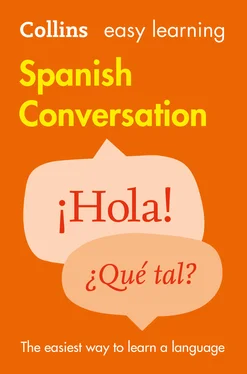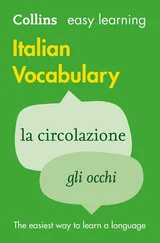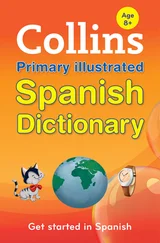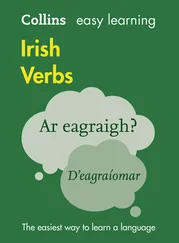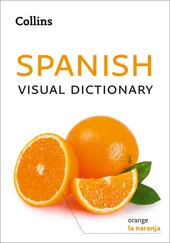As you’ll see from the last two examples, when talking about your reasons for being in Spain, you use estoyrather than soy.
| Estoyen el Hotel Principal. |
I’m stayingat the Hotel Principal. |
| Estamos estudiandoespañol. |
We’re studyingSpanish. |
| Estamos viajandopor el país. |
We’re travellinground the country. |
¿Tienen…?( Have you got…? ) is the right verb form to use whenever asking if something is available in hotels, guesthouses, hostels, tourist offices, and so on. It is from the verb tener. For more information on tener, see here.
| ¿ Tienenhabitaciones libres? |
Have you gotany rooms available? |
| ¿ Tieneninformación sobre alojamiento? |
Have you gotany information about accommodation? |
| ¿ Tienenacceso a Internet? |
Do you haveinternet access? |
Use ¿Puede…?and ¿Podría…?( Can you…? and Could you…? ) when asking someone to do something. They are both from poder. For more information on poder, see here.
| ¿ Puedeenviarme un e-mail para confirmar la reserva? |
Can youemail me to confirm the booking? |
| ¿ Puededespertarme a las siete, por favor? |
Can yougive me an alarm call at seven o’clock, please? |
| ¿ Puedecambiar las toallas, por favor? |
Can youchange the towels, please? |
| ¿ Me puededar el número de la persona a quien hay que llamar si hay algún problema? |
Can yougive me the number I should call if there are any problems? |
| ¿ Podríaenseñarme la habitación? |
Could youshow me the room? |
| ¿ Podríadarnos una habitación de no fumadores? |
Could yougive us a non-smoking room? |
| ¿ Podríaenseñarme cómo funciona la cocina? |
Could youshow me how the cooker works? |
| ¿ Le importaríapedirme un taxi? |
Would you mindcalling a taxi for me? |
| ¿ Le importaríasubirme las maletas a mi habitación? |
Would you mindtaking my suitcases up to my room? |
When asking for things in Spanish, very often all you need to do is use the present tense and make it a question: ¿Me da…?( Can I have…?).
| ¿ Me dala llave del apartamento, por favor? |
Can I havethe key to my apartment, please? |
| ¿ Me daun recibo, por favor? |
Can I havea receipt, please? |
| ¿ Nos dados toallas más? |
Can we havetwo more towels? |
| ¿ Me puede daruna cuna para el niño? |
Can I havea cot for the baby, please? |
¿LO SABÍAS?
When you ask for something extra in Spanish, such as two more towels más( more ) comes after what you’re asking for.
SAYING WHAT YOU HAVE TO DO
You’ll often need to let the people where you’re staying know about things you have to do, so that they can help you. To say what you have or need to do, use tengo que( I have to ) and the infinitive. tengois from the verb tener. For more information on tener, see here.
| Tengo queirme temprano para coger el vuelo. |
I have toleave early to catch my flight. |
| Tengo queenviar un e-mail. |
I’ve got tosend an email. |
| Tenemos queestar en Málaga para las ocho. |
We have tobe in Málaga by eight o’clock. |
| Tenemos quehacer una llamada al extranjero. |
We need tomake an international call. |
Wherever you stay you’ll need to find out what’s allowed and what isn’t, such as where you can park, where you can camp and so on. Use ¿Puedo…?( Can I…? ) and ¿Podemos…?( Can we…? ) to ask if you can do something. They’re both from the verb poder. For more information on poder, see here.
| ¿ Puedover la habitación primero? |
Can Isee the room first? |
| ¿ Puedodejar aquí las maletas cinco minutos? |
Can Ileave my suitcases here for five minutes? |
| ¿ Puedofumar aquí? |
Can Ismoke in here? |
| ¿ Podemosacampar aquí? |
Can wecamp here? |
| ¿ Podemosbañarnos en la piscina? |
Can weuse the pool? |
| ¿ Le importa queaparque el coche fuera un momento? |
Do you mind ifI park my car outside for a moment? |
| ¿ Le importa quepague con tarjeta de crédito? |
Do you mind ifI pay by credit card? |
| ¿ Le importa quelleguemos tarde? |
Is it ok ifwe arrive slightly late? |
SAYING WHAT YOU LIKE, DISLIKE, PREFER
When talking about what kind of accommodation you like, remember that the Spanish for I like works rather differently from English. You use me gustawith singular words and me gustanwith plural ones.
| Me gustaquedarme en hoteles pequeños. |
I likestaying in small hotels. |
| Me gustanlas casas antiguas de estilo español. |
I likeold Spanish houses. |
| Me encantaesta pensión. |
I lovethis guest house. |
| Nos encantanlos campings de montaña. |
We lovecampsites in the mountains. |
And to say what you don’t like, you simply put the word noin front of me gustaor me gustan.
| No me gustaesta habitación, es muy oscura. |
I don’t likethis room, it’s too dark. |
| No me gustacenar en el hotel. |
I don’t likehaving dinner at the hotel. |
| No me gustanlos hoteles modernos de la costa. |
I don’t likethe modern hotels on the coast. |
| No nos gustaalojarnos en apartamentos. |
We don’t likestaying in apartments. |
To say what you prefer, you can use prefiero( I’d prefer ).
Читать дальше
